A shocking expose on the deep corruption, shameless lies, and illegal activities of the egg Industry in the United States. You won’t believe the lengths the American Egg Board, USDA, and egg industry as a whole will go to for a profit.
For decades, the American egg industry battled and continues to battle anyone who dares to say anything even slightly negative about eggs, especially if these statements are backed by credible scientific proof.
I’m going to lead you through some of the remarkably aggressive and underhanded behavior of the egg industry, which ranges from completely absurd and nonsensical pseudoscience to illegal and aggressive corporate sabotage, all the way to outright threats of physical violence. For citations to all the documents and studies I’ll be referencing, check out the resources below.
The Birth Of The National Commission On Egg Nutrition
Our journey into the egg controversy begins in 1961 when the American Heart Association took a stand on the association between dietary cholesterol and heart disease–namely that there was an association.1 In response to this devastating news, the egg industry formed the almost impartial-sounding National Commission on Egg Nutrition in order to fight theses claims in the most American of ways: by launching a massive advertising campaign.
The Wall Street Journal and many other media outlets, sported ads combating the “theory of saturated fat and cholesterol” with claims such as “there is absolutely no scientific evidence that eating eggs in any way increases the risk of heart disease.”2
The AHA responded by complaining to the Federal Trade Commission about what they called “false, deceptive and misleading advertising.”3 [tweet this] After considering both sides, the FTC filed a formal complaint against the Commission on Egg Nutrition and its ad agency.4
The Commission on Egg Nutrition then lawyered up but were told by their own lawyers that the “chances of beating the lawsuit on scientific grounds are almost nil.5
In the 1976 FTC decision, the judge called the Commission on Egg Nutrition’s statements “false, misleading, deceptive and unfair.”6
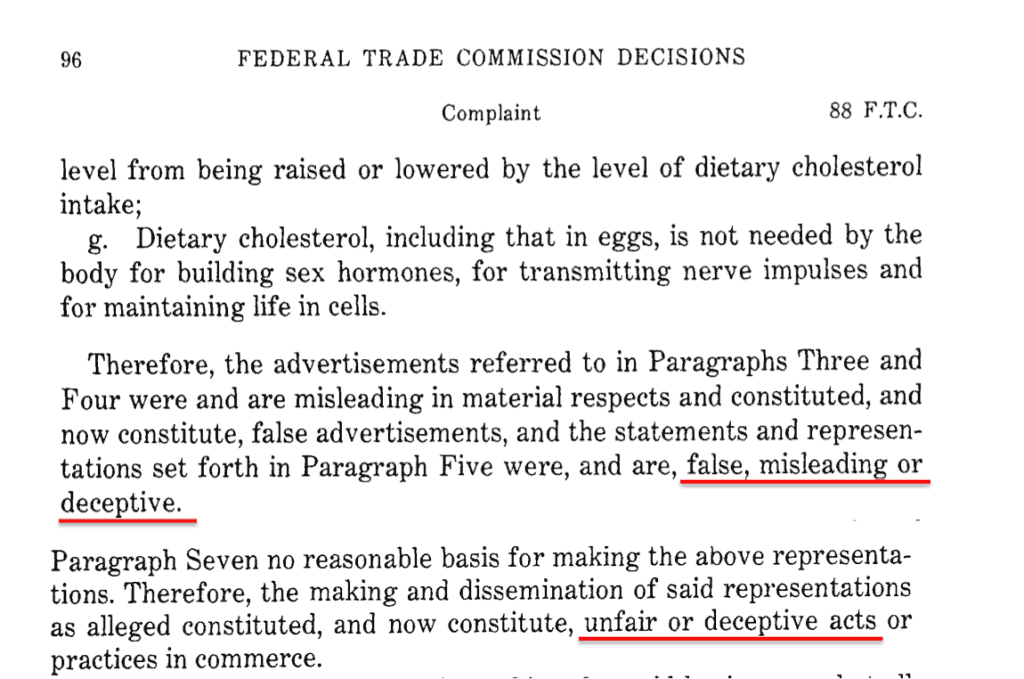
(click to enlarge)
The decision said that egg advertisement claims such “there is competent and reliable scientific evidence that dietary cholesterol, including eggs, decreases the risk of heart disease”7 and that “the human body eliminates the same amount of cholesterol as that eaten,”8 were untrue.
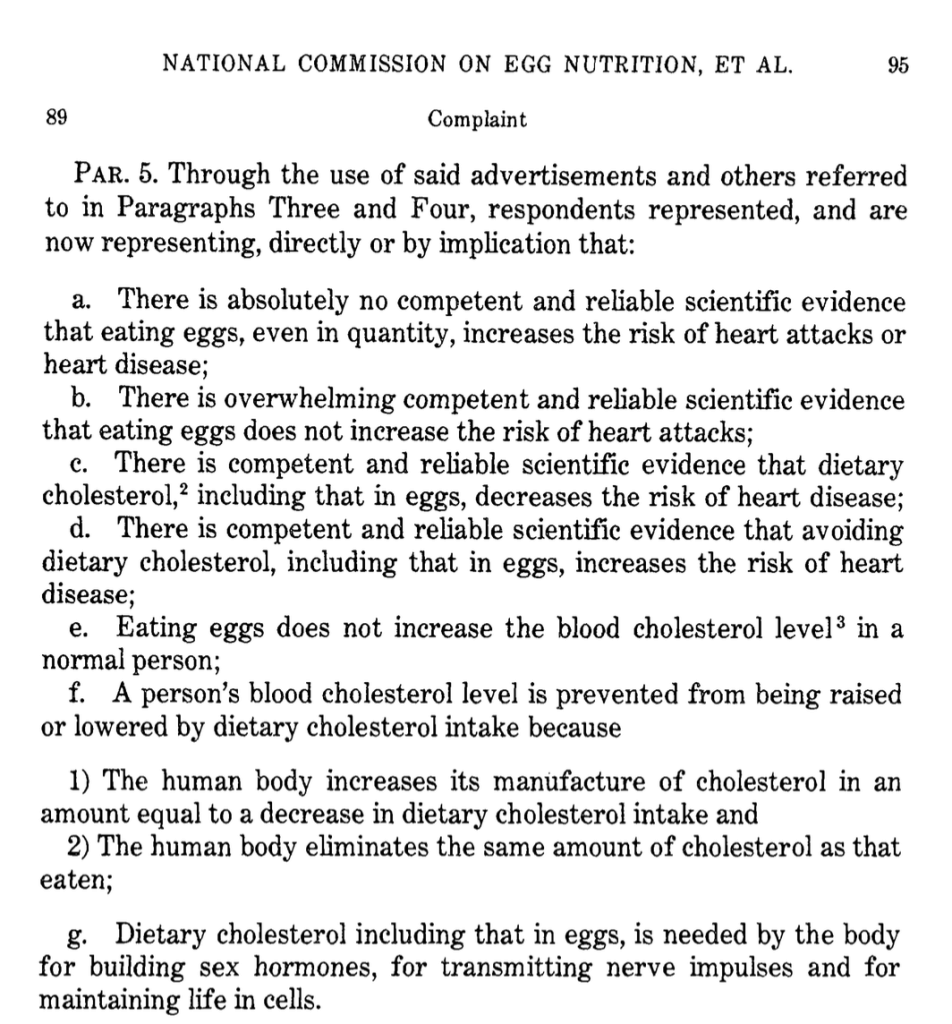
(click to enlarge)
The judge also pointed out that the name National Commission on Egg Nutrition implies an “impartial, independent, quasi-governmental health commission” when in fact it is “an association of persons engaged in the egg industry.”9
The Commission on Egg Nutrition argued that making false claims is within their rights of free speech, but were unable to convince the FTC, the court, or even their own lawyers. So again they took the most American of routes and set out to dupe the American public by paying for scientific studies that would reveal the cholesterol in eggs to be harmless.10
In reviewing such “scientific” literature, nutrition expert Dr. John McDougall pointed out that:
Of the six studies in the medical literature that fail to demonstrate a significant rise in blood cholesterol level with the consumption of whole eggs, three were paid for by the American Egg Board, one by the Missouri Egg Merchandising Council, and one by the Egg Program of the California Department of Agriculture. Support for the sixth paper was not identified…
The trick is in knowing how to design your experiment so you will get the results you are looking for. To get little or no increase in cholesterol results, you first saturate your subjects with cholesterol from other sources, because studies show that once people consume more than 400 to 800 milligrams of cholesterol per day, additional cholesterol has only a minor effect on blood cholesterol levels… Well-designed studies by investigators, independent of the food industry, clearly demonstrate the detrimental effects of eggs on blood cholesterol levels.11
Sure enough, non-egg-industry-financed studies consistently showed that dietary cholesterol is harmful to our health.12
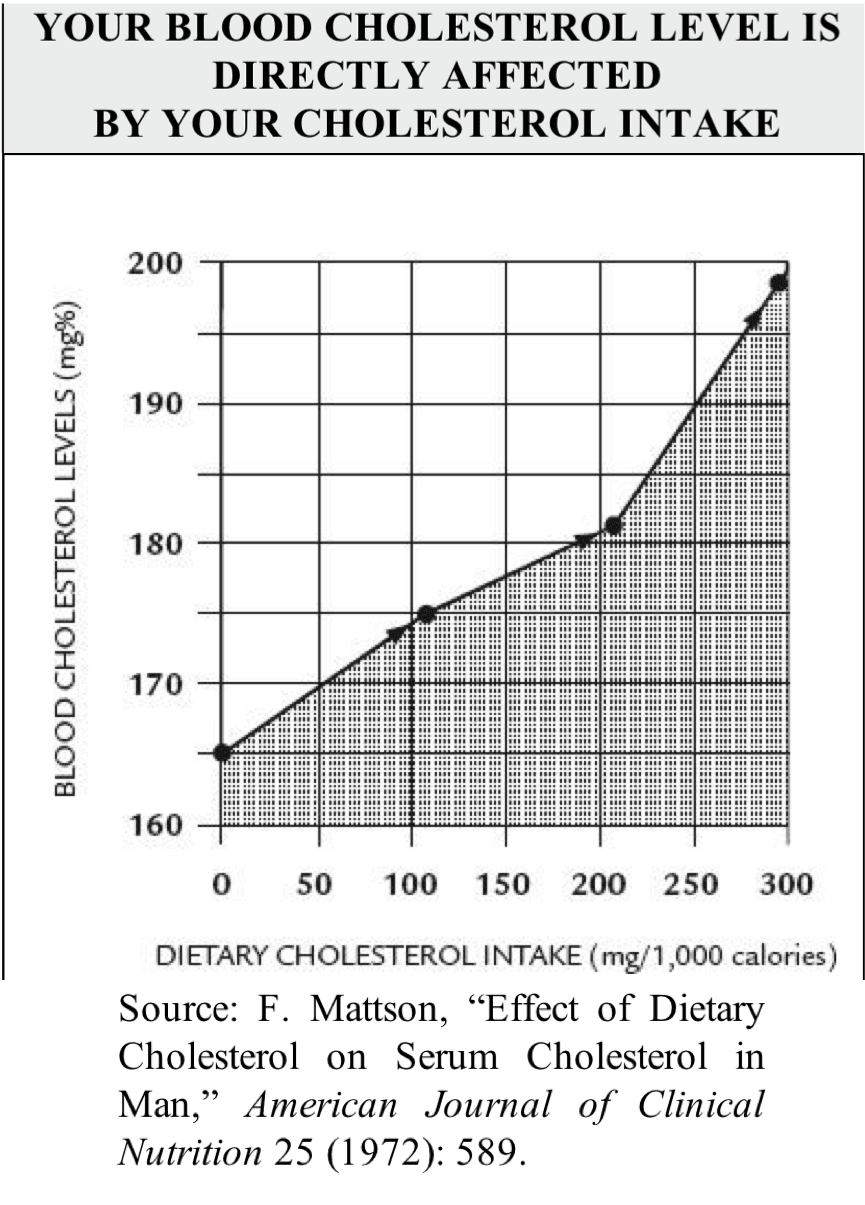
(click to enlarge)
Which, of course, the Egg industry found less than egg-ceptional (just wanted to see if you were still paying attention…) because it only gets better from here!
The American Egg Board & the Lies It Told
In a moment of virtually edible incredibleness, in 1976 the egg industry birthed from its collective cloaca the American Egg Board, whose mission, according to their website is to “allow egg producers to fund to carry out proactive programs to increase demand for eggs and egg products through research, education and promotion.” And yes, that is a direct quote.13
Around this time, our little engine that could, the American egg industry, continued their efforts to disprove the wicked cholesterol conspiracy. The United States Senate Select Committee on Nutrition and Human Needs—known as the McGovern Committee after its chairman—was originally formed to address concerns about hunger and malnutrition in the United States. In 1974, the Committee expanded to include national nutrition policy and go after the major killers of overnutrition, with heart disease leading the pack.14 Needless to say, the egg industry was concerned.
In an effort to clear its besmirched name, the industry presented five studies they felt completely redeemed eggs as a viable nutrition source. McGovern found the studies so confounding that he asked the National Heart, Lung and Blood Institute to review them. As John Robbins reports in his groundbreaking book Diet for a New America, “The institute carefully examined each of the five studies, then reported to Congress that the studies seemed deliberately designed to distort the facts. The institute’s impartial appraisal was that the studies were ‘seriously flawed…meaningless and should be discarded.’”15
But don’t worry—our little underdog fighting against Big Government didn’t give up. They again showed their true American colors by launching yet another advertising campaign, this time armed with “scientific evidence” based on these five studies, which had just been completely disproved.
(I’m sorry…I’m just so proud to be an American right now…)
Back to our unsung hero, who continued to claim dietary cholesterol is an essential nutrient and that our bodies naturally lowers their cholesterol production in response to higher dietary cholesterol consumption.16 To back up this last claim, the egg industry cited outdated cholesterol studies, which used isolated cholesterol crystals before it was known that our bodies don’t absorb cholesterol without the presence of dietary fat.17 But who needs valid, up-to-date science when you have the results you want?
Sadly for the egg industry, prevailing experts like Dr. Robert Levy, Director Of The National Heart, Lung And Blood Institute at the time, stated that:
As far as we can determine, all of us would do just as well if we had no cholesterol in our diet. Cholesterol can be made by all of the cells in the body so we don’t need to take in any.18
Dr. Robert Levy, Director Of The National Heart, Lung And Blood Institute
Other experts such as the Task Force To The American Society Of Clinical Nutrition, stated that:
There is no known evidence that low-cholesterol diets are harmful, or that dietary cholesterol is an essential nutrient in any human condition.”11
the Task Force To The American Society Of Clinical Nutrition
John Robbins, in Diet for a New America wrote that, “Under court order, the egg industry finally had to stop running ads that represented cholesterol as an essential dietary nutrient. And the court told them once again to stop denying the link between cholesterol and heart disease.”19
But fear not! Such “lies” would never sway our steadfast egg industry heroes. If you can’t find an expert to tout the wonders of your product, you can always buy one, right? The Executive Director of the Center for Science in the Public Interest, Michael Jacobson, stated:
In June 1980, a committee of the National Academy of Sciences issued a report defending the current fatty diet. The main authors of the report were professors who had for many years received grants from or were paid consultants to the National Dairy Council, the National Livestock and Meat Board, the American Egg Board… and other industries whose profits depend on Americans’ pathogenic diet. One such professor was quoted in the press as being surprised that people thought the $250,000.00 he received as a consultant to the egg and other industries would cloud his objectivity regarding the nutritional value of eggs.20
Michael Jacobson, the Executive Director of the Center for Science in the Public Interest
In 2012, the egg industry found itself in a bind once more when a study arose comparing atherosclerosis in smokers and egg-eaters finding that those who ate the most eggs had as much as two-thirds the risk of those that smoked the most, the equivalent of a pack-a-day habit for 40 years or more.21
Internal memos retrieved by the Freedom of Information Act and highlighted by the nutrition powerhouse himself, Dr. Michael Greger of Nutritionfacts.org,22 reveal the egg industry tried to pay scientists to speak against this study. When they were unable to find a scientist willing to refute the study, a miracle occurred. An email from an MD, PhD, MBA, or “Doctor Doctor” as Dr. Greger says, discredited the study. Yet when the study’s principle investigator responded, they found out that this doctor didn’t exist and the email had come from a hacked email account of someone who’d been on vacation.
As we’ve seen so far, the unflappable egg industry doesn’t let something as trivial as the truth get in its way. [tweet this] In 2006, thirty years after being told by the FTC to stop making false claims, the egg industry was still at it. Internal documents obtained through the Freedom of Information Act and again highlighted by Dr. Greger,23 showed the egg industry drafted a letter to magazines claiming that, “the American Heart Association changed its recommendations to approve an egg a day in 2000 and eventually eliminated its number restrictions on eggs in 2002.”
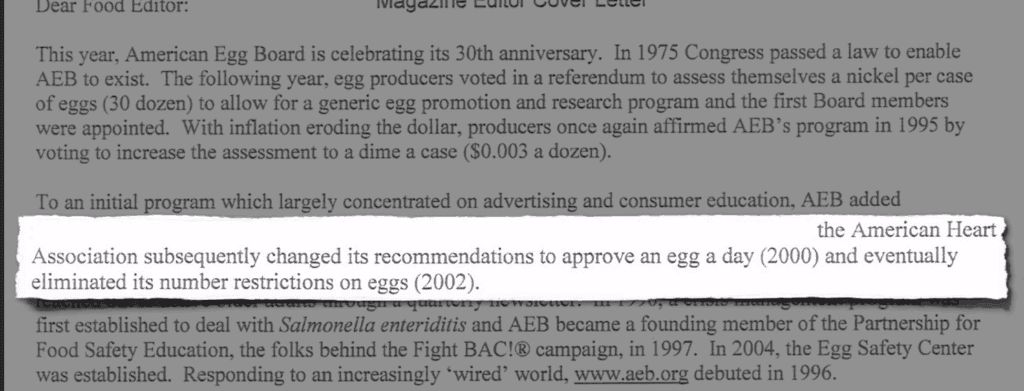
(click to enlarge)
Dr. Greger produced a response from the head of the USDA’s poultry research and promotion program qualifying that the recommendations never changed. What actually happened was, in response to a question posed by a planted audience member, the AHA had acknowledged that a single egg could technically fit under the 300mg a day total cholesterol limit set for individuals with normal cholesterol levels, if you then eliminated all other forms of cholesterol from your diet.
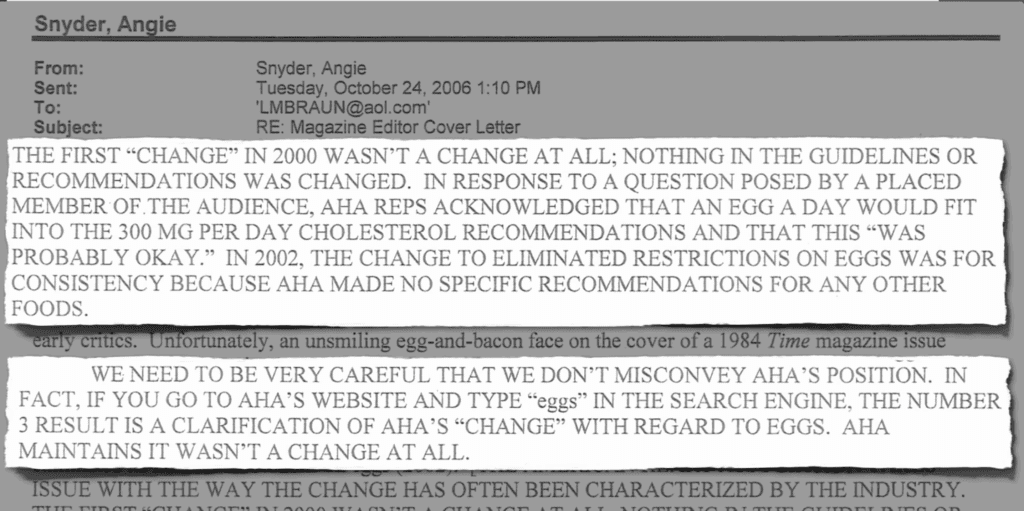
(click to enlarge)
You see, a single egg contains 213–275mg, which is actually over the 200mg per day limit for people with high cholesterol.24 As an interesting point of comparison, KFC’s Double Down Sandwich—which features two chicken breasts, bacon, processed cheese and a dollop of KFC’s special “Colonel’s Sauce”—contains 150mg cholesterol. That is 63–125mg less than a single egg.25 [tweet this]
The most recent display of tenacity, ingenuity and total balls-out brazenness on the part of the egg industry is the attack on Hampton Creek, formally Beyond Eggs, makers of Just Mayo and other plant-based foods.
The Battle Over Eggless Mayonnaise
In a two-year battle during which the they violated no less than five laws, the Egg Board pulled out all the stops to take down what they saw as a “crisis and major threat”: eggless mayonnaise.26
The American Egg Board went for a multi-prong attack. In December 2013, they reached out to Anthony Zolezzi, an external sustainability contractor and self-proclaimed “eco-entrepreneur,” who’d said he could have Whole Foods refuse to sell Hampton Creek’s Just Mayo. It would only take a single phone call. And, of course, an implied fee.27
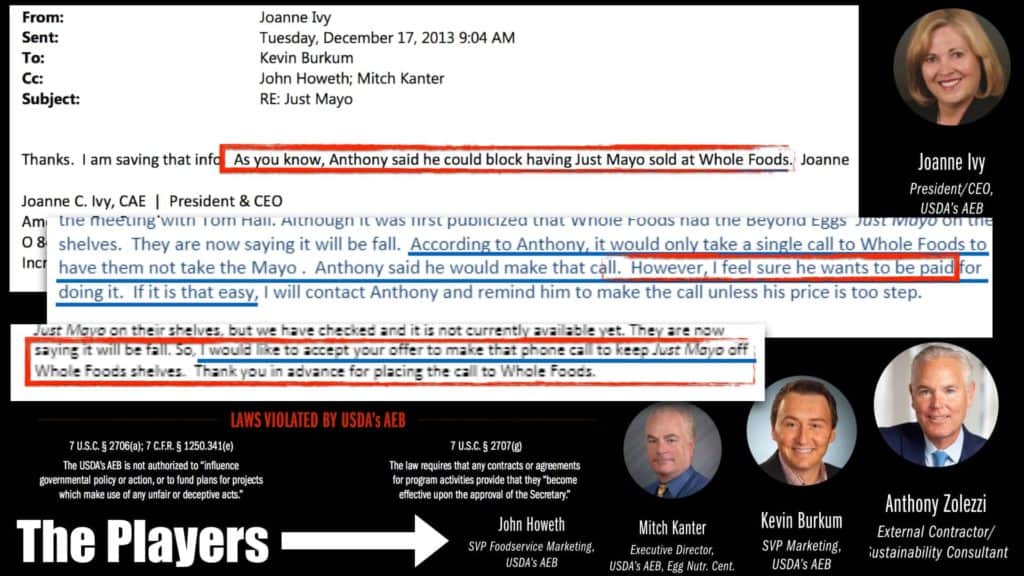
(click to enlarge)
When they failed to stop Whole Foods from carrying Just Mayo, the American Egg Board went to phase two with the help of the USDA. In January 2014, Roger Glasshoff of the USDA proposed to report Just Mayo to the FDA for a false labeling claim. The FDA issued a warning letter28 to Hampton Creek about misleading consumers by using the term “mayo” and the image of an egg while their product did not actually contain eggs. Because that’s the most misleading advertising we’ve come across so far.
To continue their full-frontal egg-sault (that’s the last one for real), the American Egg Board hired Edelman, the world’s largest crisis management firm to lead a campaign against Hampton Creek with the USDA approving the key messages. They budgeted $33,000 to pay popular food bloggers for positive pieces on the wonders of eggs.29
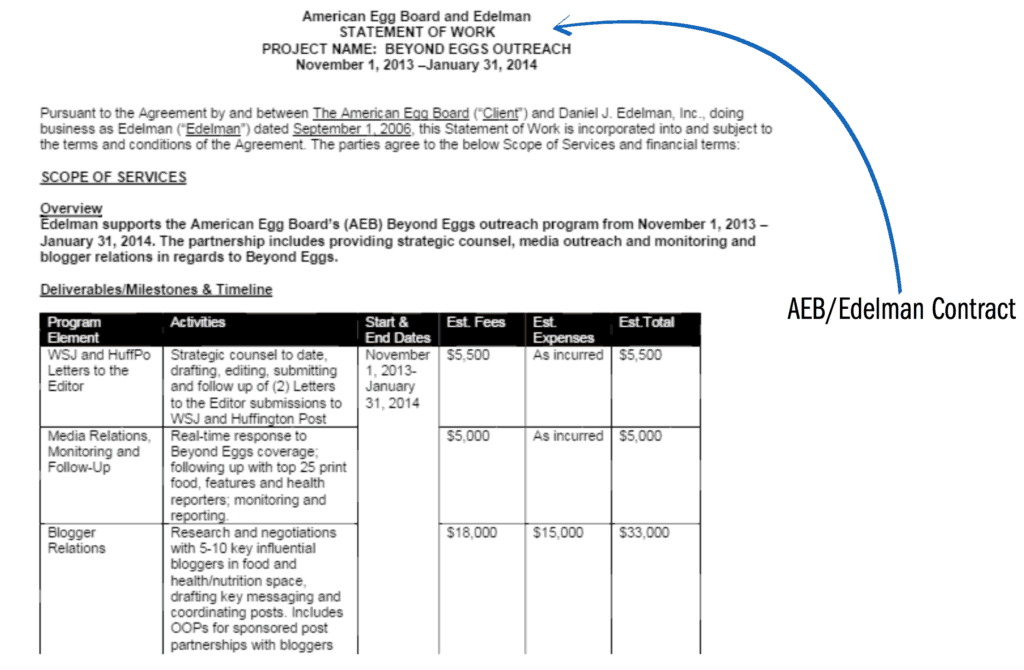
(click to enlarge)
Because the union of a massive government-backed group and a multi-billion dollar corporation is far better than either on their own, the American Egg Board backed Unilever, the maker of Hellmann’s mayonnaise in the suit they filed against Hampton Creek on October 31, 2014,30 again for the product not actually containing eggs, thus violating the United States’ federal standard of mayo. Because in this country, we have principles. Sadly, due to overwhelmingly bad press, Unilever dropped the suit two months later.31
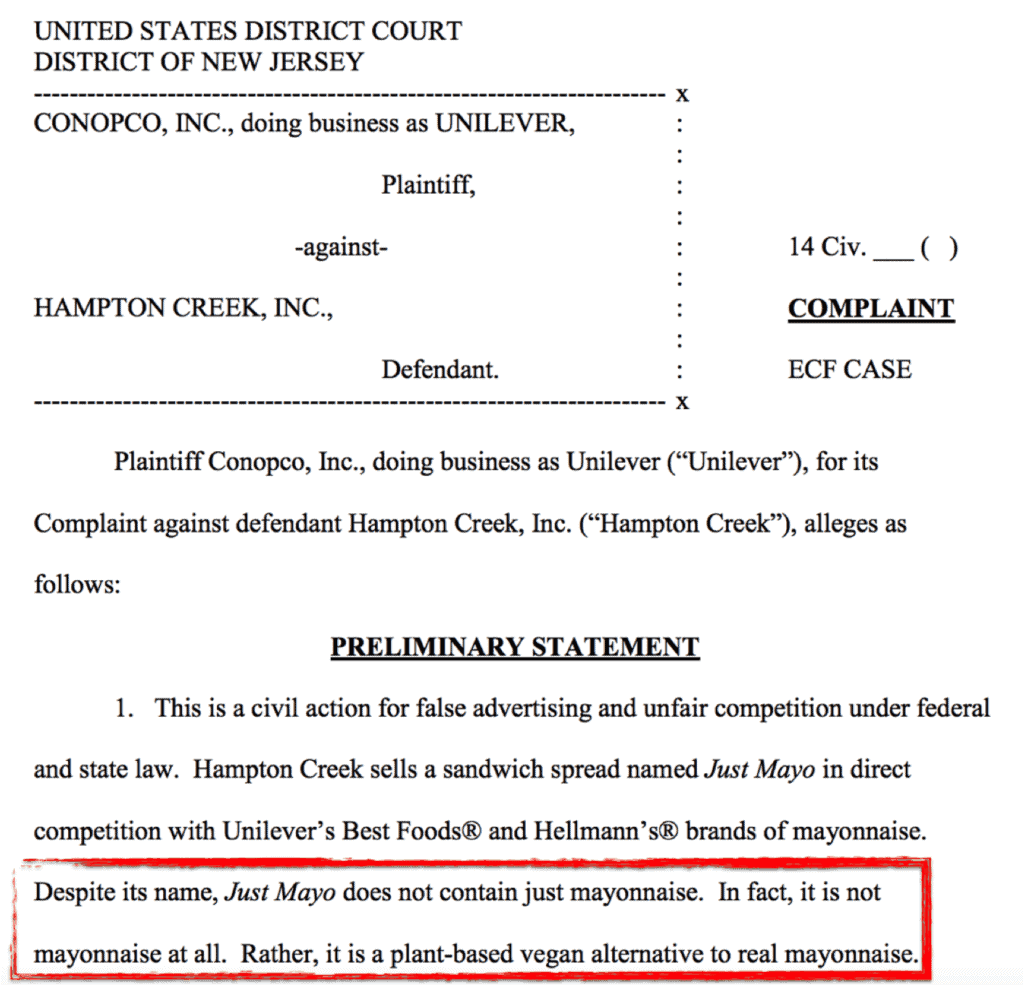
(click to enlarge)
But as we know by now, the egg industry is never one to say “well, we did our best, let’s move on.” In the grand finale of their ingenuously-crafted multi-prong attack, they whipped out their most carefully crafted weapon yet: flippant threats of violence and murder. [tweet this]
Both Mike Spencer, Executive Vice President at Hidden Villa Ranch, a Hampton Creek Competitor, and Mitch Kanter, the Executive Directore of the American Egg Board’s Egg Nutrition Center, joked about putting out a hit on Hampton Creek’s CEO.32

(click to enlarge)
So let’s say, just for argument’s sake, that cholesterol in eggs isn’t bad for you and that consuming them won’t kill you. Well, apparently, creating plant-based alternative to them just might.
Thus ends the two-year epic of Big Egg vs. Hampton Creek. (Or so we hope.)
Interestingly enough, while the American Egg Board and USDA project a unified front in public, behind the scenes, even the USDA has to try and reign in the apparently boundless cojones of the egg industry.
In another juicy exchange unearthed by the Freedom of Information Act and phenomenally documented by Dr. Greger in a video,33 we see the egg industry trying to create advertisements with American Egg Board money. You see, when an egg company wants to create an ad, they can do so with their own funds and say absolutely whatever they want, or they can dip into the expansive advertising budget of the American Egg Board, but then be subject to the USDA’s regulations. Now keep in mind that the USDA has a vested interest in marketing eggs and basically has a bromance with the American Egg Board, yet still has to put its foot down on the over-zealous egg industry’s penchant for untrue claims.
Wordplay & False Advertising
In this fascinating and somewhat comical email exchange, the USDA repeatedly tells the egg industry that they cannot legally call eggs “healthy” as the official FDA rules for the term “healthy” require that a food have saturated fat levels of 1g or less per 100g, less than 10% calories from saturated fat and that 90mg or less of cholesterol per serving, which even half an egg fails.34
Legally, eggs can’t be called nutritious, but can be called “nutrient-dense” as there is no legal definition for “nutrient-dense”. But as Dr. Greger says, even Twinkies can be called “nutrient-dense.” Eggs can’t be portrayed as a diet food because of their saturated fat and cholesterol content, plus they contain twice the calories of anything that can be “low cal.” Eggs can’t be called “relatively low in calories,” “low in sat fat,” or “relatively low in fat.” Eggs can’t even be called “a protein-rich food.” It’s illegal to say they “contribute nutritionally,” are “healthful” or even “contribute healthful components.” They can’t say eggs are “good for you” or an “important part of well-balanced, healthy diet.” Or even “safe.”35 [Tweet this]
Yes, it’s illegal to say eggs are safe, with more than a hundred thousand Americans poisoned by Salmonella every year from eggs. The American Egg Board can’t even mention anything but hardboiled and dried eggs, as even their own research shows that sunny-side-up, over-easy, and scrambled eggs are unsafe.36

(click to enlarge)
It’s particularly interesting to read some of the USDA’s notes like: [you] “can’t use the word ‘healthy’ because of the amount of cholesterol (risk-increasing nutrient) in eggs.”37 They are literally identifying cholesterol as a risk-increasing nutrient, yet the 2015 USDA New Dietary Recommendations Committee is proposing to remove any cholesterol limitation from official guidelines,38 something we’ll cover in detail in the health-focused egg video.
The USDA also encourages crafty thinking. When told they can’t say eggs “aid in weight loss,” the egg industry instead tried “can reduce hunger,” with the USDA’s shining approval of their clever use of semantics.39 Because food that reduces hunger is a crowning achievement of agricultural engineering.
With all of this wordplay, it seems only natural that the American Egg Board decided to really bring home the bacon. Kevin Bacon. If you notice in the ad, Mr. Bacon mentions that an “egg contains 6g high quality protein,” to “keep you fuller longer” and “help you stay energized all morning.”40 He doesn’t say “healthy” or “nutritious,” but is certain to mention it help you say full. And with all that fat and cholesterol it better! The interesting part is that Bacon does say “Are you ready to start eating a nutritional powerhouse of a breakfast?”–the very term that was formerly disapproved by the USDA in the email exchange.41 So either the USDA has relaxed its standards, or this was allowed because he technically doesn’t say that eggs are a nutritional powerhouse of a breakfast, but rather simply asks the woman if she is ready for a breakfast that is. [tweet this]
Hats off to you, American Egg Board. Way to step around those cholesterol-laden mines and give the American public what they want: a celebrity pimping a food the public loves—which has been shown time and again to contribute to our nation’s number one killer.
Way to tell the good public how healthy they are being by continuing to consume your misunderstood gem of a product. Seeing as how you’ve paid professors, scientists, and executives to manipulate and misrepresent facts and spent billions on fierce advertising campaigns backed by thoroughly disproved science, it really makes sense to step it up to a high-name celebrity, who I’m sure performed for a nominal fee. Government-regulated dollars hard at work! Though, to your credit, this time you did use them to promote eggs—as is your mission—rather than fund illegal attacks on competitors or corrupt studies based on junk-science.
Way to go—really. Now all you need is actual facts.
In Closing…
Believe it or not, this video is but a peek into the underbelly of food industry in America. The meat, dairy and egg industries have enormous sway in our government, our dietary guidelines, school nutrition education, and so many other far-reaching facets of our society.
I hope that this has been informative and illuminating. The time it to produce this video clocks in at around 83 hours. If you’d like to help support Bite Size Vegan so I can keep putting in the long hours to bring you this educational resources, please check out the support page.
Please share this video post around to spread the truth. I’d love to hear your thoughts on this egg industry egg-spose. (That’s it for real.) Let me know in the comments!
— Emily Moran Barwick


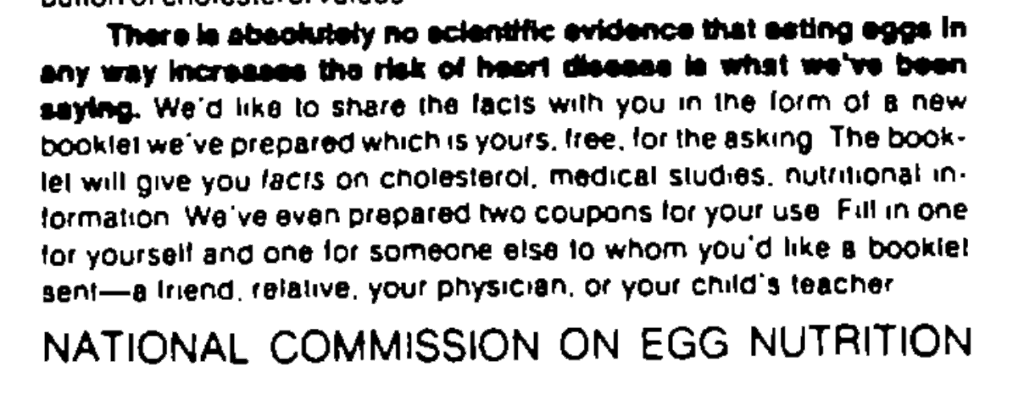
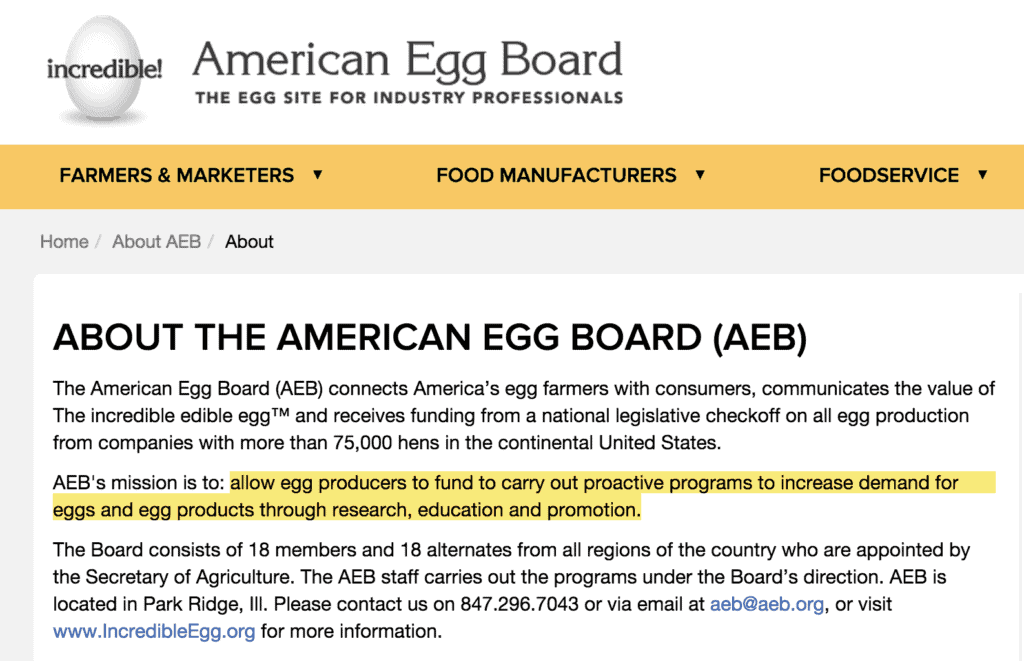
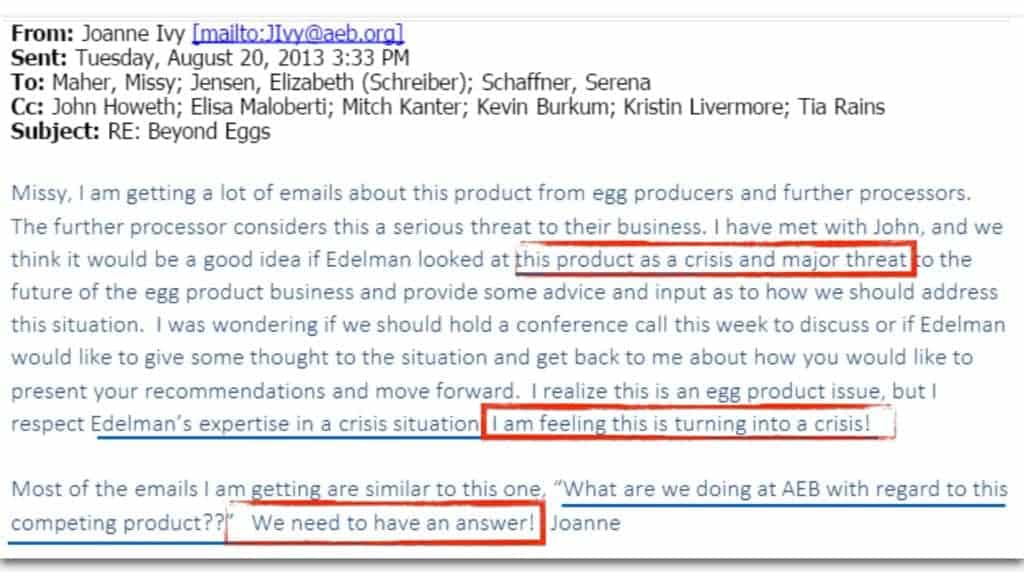
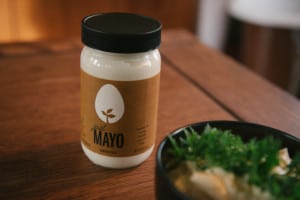
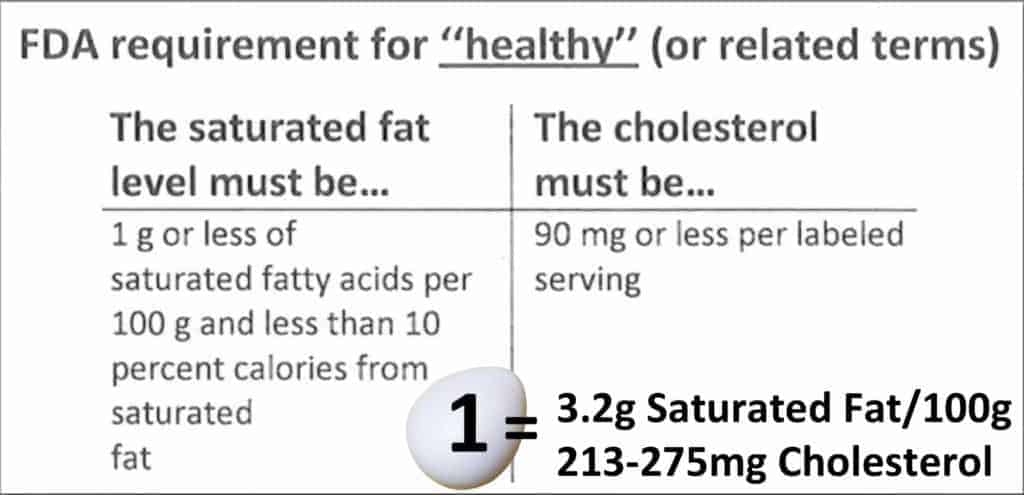


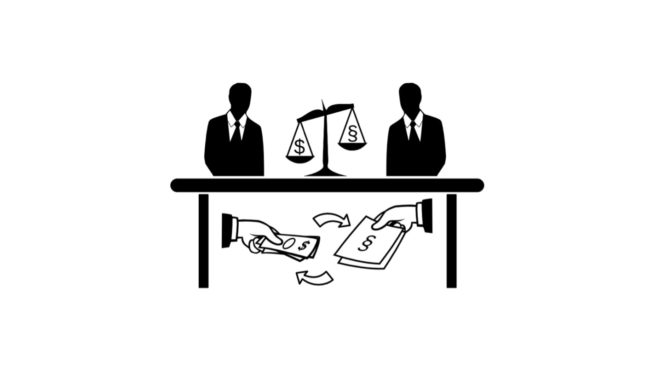
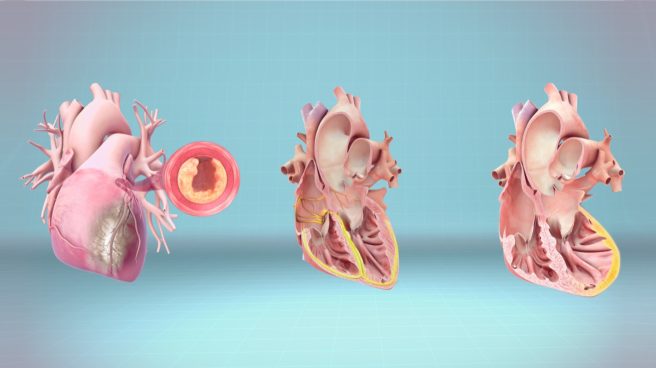
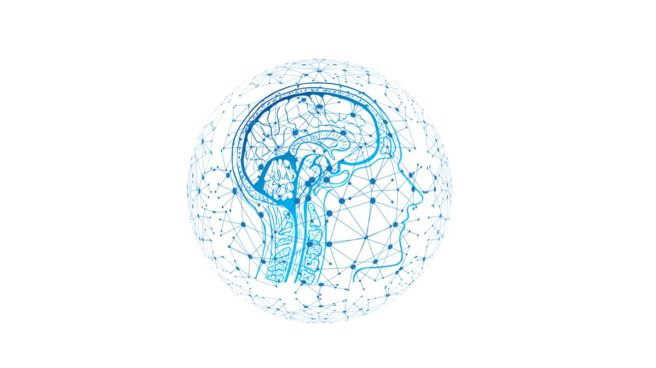
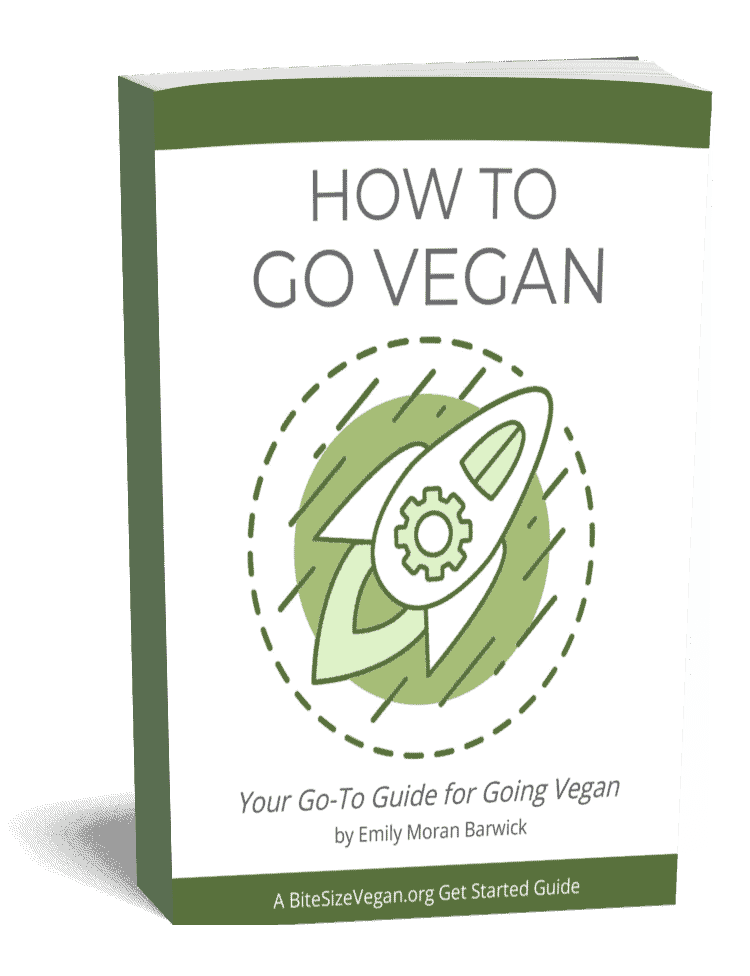
eggceptional good.
Wow, very informative video. I am just beginning to learn that all the commercials pushing dairy and meat are only to support those industries and nothing more.
We have far too long listened and believed them. I grew up with he government “food pyramid”. How anyone can believe or think that rotting, decaying animal flesh is good for you, I will ever know.
Thank you so much Sally Anne! The corruption is astounding and the infiltration into every aspect of our society equally so!
Hi Emily! My name is Helena.
First of all congrats for the video, very informative! I was watching it with my boyfriend and he thought that maybe you could be interested in the following study: https://www.ncbi.nlm.nih.gov/pubmed/24475543
He has done research into conflicts of interest in the uk government food policy and this came up in his background reading.
The headlines:
The USDA has joint responsibility for the promotion of health through good diet and to protect the business interests of agriculture industries.
This means that, although evidence emerged that the mediterannean diet was by far the healthiest, USDA advice went in exactly the opposite direction.
This study focuses on consumption of red meat. Over time, despite the knowledge of how unhealthy red meat is, USDA advice was to ´increase consumption of red meat`(that is actually a quote, with no guidance as to how much it should increase whatsoever.
In the guidance that this paper analyses, the recommended intake of red meat in the US is 2500% of the intake of Greece, the country identified as having a healthy diet.
I´m sorry I can´t give you more of a lowdown than this, but the whole story is there in the study – and it makes interesting reading!
I hope it’s interesting for you! And thanks very much for your vegan nuggets, I enjoy all of them!!
Regards.
Thanks so much! And yes, the USDA has totally conflicting interests in the truest of senses. It’s incredibly corrupt. I’ll certainly take a look!
Emily, many thanks for your meticulously researched and well presented video!
You are so welcome, Hadar. Thank you!
Corruption? I hope everyone has read “The Dead Pit” by Michael Moss (19 January 2015) in the New York Times. The United States Meat Animal Research Center in Nebraska tortures thousands of farm animals in an attempt to increase profits for meat producers. Using taxpayer money of course! One of the more revolting things I have ever read. Keep it up Emily.
Very important issue as well! That’s something I’ve been wanting to cover for some time. Hopefully soon!
Kevin bacon wd clear his acne scarred face,like I did my severe tetracycline treated acne,if he gave up eggs n dairy hormones. It took me years of suffering before I found out this connection. But loss to acne n doctor s excess lifestyles , now I’m left w DAmaged liver fr those pills,
No compensation settlement as usual,medical is religious control led,see names of hospitals,n religious profit fr their hospitals which started from inquisitors like Cisneros,to continue to burn women alive with radiation n chemotherapy which was weapon in WW1 now outlawed as weapon but not as “treatment of women’s pretend cancers,,it’s called acceptable de population of targeted women n children,the rich queen n rockerfeller have naturopaths while natives etc have white man medicine “for free”. Lol. ,,not really lol
Really, really well done Emily. Thanks for making such a great video. You are brilliant and so appreciated.
Thank you so much Melissa! Right back at ya! :)
I just thought I’d add my two cents into this whole cholesterol saturated fat discussion. To me, it shows how flawed studies can be even when they seem like they’re not. Look at the studies showing how bad cholesterol, and saturated fat are for us. But, one must use common sense and realize; your body produces roughly 2,000 mg of cholesterol on it’s own. If you’re eating a plant based diet; your body is producing cholesterol. If you consume cholesterol, it slows down its production. It’s the same with saturated fat; your body produces it’s own whether you consume it or not. So how on earth would egg’s be bad for you? Because it contains something essential to your body that it will produce on it’s own either way? Now, factory farmed eggs are not the same as natural eggs. How do we know what was used in these studies? That’s like doing a study on salt, but the study uses refined salt instead of Himalayan or celtic. Of course the outcome will be different. Or, doing a study on grain fed, factory farmed beef vs grassfed natural beef. I’m sure the outcomes will once again be different. You might want to look into the case study published in the New England Journal of Medicine on a 90 year old gentlemen who ate 25 eggs per day with perfect health.
I think that James has a very good point. And if we’re trying to find the Truth vs. merely get everyone to be vegan like many of us are, then turning over EVERY legitimate stone is crucial. I feel absolutely fantastic when I add hardboiled, locally-raised eggs to my predominantly plant-based diet. It takes me up a notch in energy and overall wellbeing. But I would never buy factory-farmed eggs and wouldn’t expect them to make me feel good. They’re quite literally a different animal.
Thank you for this very absorbing post!
I follow the Chinese Buddhist path myself and would never use any animal products, period. (to the extent that I am aware of them) Karma is inexorable and just because something might make me feel good today is of little importance.
Some feel good drinking alcohol or using recreational drugs, so I don’t find this way of thinking much of a justification myself.
Thank you for caring about the animals. This is a great video for adults and those who have a lot of time to keep pausing to compute all the details.
A little feedback: My students find this video fast and hard to follow. They would like to see shorter videos without background music and without sarcasm just stating the main points.
Veganly yours,
Miss Kadie
Thank you for the information, I really appreciate it. I eat a whole plant base diet and I have been not only loosing weight but my colesterol went down without Statins!!! I feel great! This is a way I chose to live my life without harming and violence to animals and the environment!!
Thank you so much for sharing, Mary! That’s so great to hear about your health!